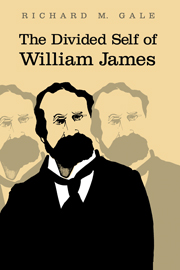Book contents
- Frontmatter
- Contents
- Acknowledgments
- Introduction
- The Promethean Pragmatist
- 1 The Ethics of Prometheanism
- 2 The Willfulness of Belief
- 3 The Freedom of Belief
- 4 The Will to Believe
- 5 The Ethics of Truth
- 6 The Semantics of “Truth”
- 7 Ontological Relativism: William James Meets Poo-bah
- The Anti-Promethean Mystic
- Appendix
- Bibliography of Works Cited
- Index
1 - The Ethics of Prometheanism
Published online by Cambridge University Press: 05 June 2012
- Frontmatter
- Contents
- Acknowledgments
- Introduction
- The Promethean Pragmatist
- 1 The Ethics of Prometheanism
- 2 The Willfulness of Belief
- 3 The Freedom of Belief
- 4 The Will to Believe
- 5 The Ethics of Truth
- 6 The Semantics of “Truth”
- 7 Ontological Relativism: William James Meets Poo-bah
- The Anti-Promethean Mystic
- Appendix
- Bibliography of Works Cited
- Index
Summary
James's Promethean pragmatism attempts to show us a way to have it all, or at least as much of it as we mortals can realistically hope to have. Having it all requires that all of our many selves have their desires satisfied. The underlying assumption of this grand Promethean quest is that the ultimate good is to have one's desires satisfied. Not surprisingly, James developed an ethical theory whose ultimate normative principle is that:
1. We are always morally obligated to act so as to maximize desiresatisfaction over desire-dissatisfaction.
This chapter will give an in-depth exposition of how James arrived at and defended this maximizing ethical principle. Chapter 2 will show that the upshot of James's analysis of belief is the highly Promethean doctrine that
2. Belief is an action
in the sense of something that is done intentionally or at will. Chapter 3 will present James's analysis of freedom of action and therefore belief, given that belief is an action; and Chapter 4 will give his will-to-believe justification for believing that we have this sort of freedom of action, thereby rendering belief fair game for moral permissions and prohibitions.
From propositions 1 and 2 it follows that
3. We are always morally obligated to believe in a manner that maximizes desire-satisfaction over desire-dissatisfaction.
This attempt to give an ethical criterion for the acceptance of belief challenges the intellectualist tradition of Western philosophy from Parmenides to the logical positivists.
- Type
- Chapter
- Information
- The Divided Self of William James , pp. 25 - 49Publisher: Cambridge University PressPrint publication year: 1999
- 1
- Cited by



